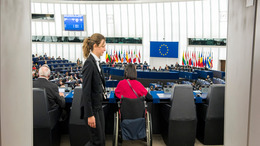A coalition with far-right SPD and Communist Party, however, is hard to imagine. Babiš was open for ad-hoc cooperation and as a businessman with transactional thinking he will always be ready to conclude any deal if it brings him profit. Yet, such coalition would be very unstable and Babiš also wants to better his poor international reputation. An open alliance with xenophobes would not help him in that respect. Since he was often compared to Viktor Orbán and Jarosław Kaczyński, he tries to get rid of the image of a new Central European semi-autocrat. He has nothing to gain from being coupled with the two European „cultural counter-revolutionaries“, as Orbán and Kaczyński labelled themselves in 2016 public debate.
Unlike in Hungary and Poland, Babiš’ populism lacks comprehensive ideology rooted in culture and history. His protest against the „traditional political class“ contains disrespect to Brussels, but – as he often underlines – he is not per se against the European Union. His statements relating the EU are very vague and the Czech EU policy will in result probably remain broadly pragmatic with two key elements: Firstly, the Czech Republic will protest against any permanent relocation scheme for asylum-seekers and will not accept any refugees voluntarily. Secondly, the Czech Republic will not join the Eurozone, as Babiš will act in accordance to public opinion: 80 percent of Czechs refuse the single currency.
The outcome of the finale of the presidential elections in the end of January may influence the domestic political dynamics much. Zeman promised to appoint Babiš as Prime Minister for a second attempt to form a cabinet in February, when he is still in office. If Zeman loses, Babiš will be in a time pressure to get Social Democrats on board (and to get parliamentary support of Communists), before Drahoš takes over, since he would be a harder opponent for him. The new (or re-elected) President may set the date of early elections if this scenario materializes. The best option for Babiš would be a linkage with the municipal and senatorial elections, which should be held in September or early October 2018. A super election in fall would bring him a true landslide victory.
Vít Dostál is Research Director of the Association for International Affairs (AMO) in Prague, Czech Republic. He wrote and edited many publications dealing with Czech foreign policy and Central Europe.
![[Translate to English:] Andrej Babis](/fileadmin/files/_processed_/2/b/csm_399707067EA7A8339_fdaadaf887.jpg)

![[Translate to English:] Bundeskanzlerin Angela Merkel, US-Präsident Donald Trump und Großbritanniens Premierministerin Theresa May diskutieren während des G-20-Gipfels 2017 in Hamburg.](/fileadmin/files/_processed_/a/5/csm_19213419535390087270_716a2f308e_o_07613ea0e5.jpg)




